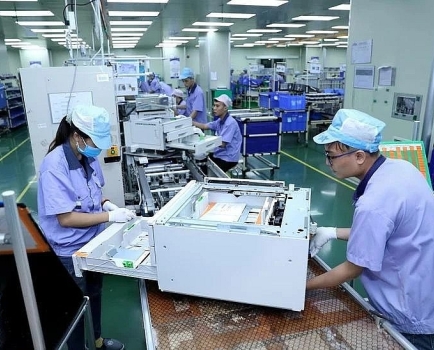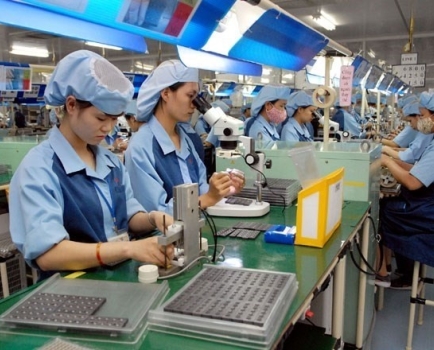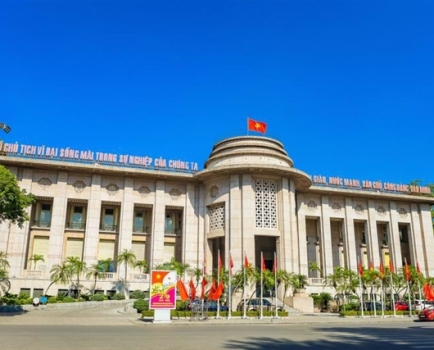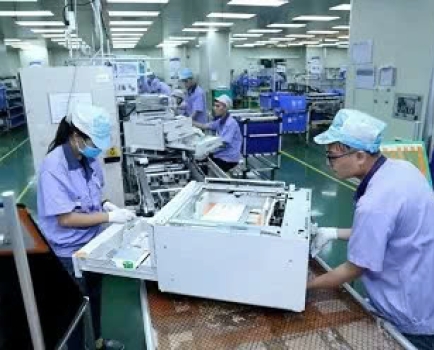Streamlined policies to attract more indirect foreign capital to Vietnam’s firms
Wed, 05 Jun 2019 16:01:00 | Print | Email Share:
Though the current legal regulations allow foreign investors to fully own a local firm, it still prevents the investors from pouring funds into some conditional business lines, such as banking and aviation sectors with foreign ownership cap limited at 30 percent.

New regulations drafted in the revised Law on Securities, which will be discussed at the ongoing 14th National Assembly’s seventh meeting on June 6, are expected to make Vietnamese firms more attractive to foreign investors.
The draft law, which would replace the 2006 Securities Law and its 2010 amendments, covers many key issues related foreign investors, such as foreign holding cap in public companies and non-voting depository receipts.
One of the most significant contents of the draft law is the expansion of foreign holding cap in public companies.
Accordingly, public companies would be subject to no restrictions on foreign holding cap, unless otherwise prescribed by treaties to which Vietnam has acceded or a specialized law.
Notably, the foreign holding rate in a public company, which operates in different sectors and subject to different foreign holding ceilings, must not exceed the lowest rate among those prescribed for these sectors.
Foreign holding cap, the aggregate rate of voting shares and contributed capital amounts owned by foreign investors and economic institutions with foreign investors holding 51 percent or more of charter capital in a public company, securities trading organization, securities investment fund or securities investment company, are not specified in both the 2006 Securities Law and its 2010 amendments.
Meanwhile, Decree 60 issued in 2015 sets out the maximum foreign ownership rate of 49 percent for public companies operating in trades and sectors subject to conditional investment and business.
According to the Ministry of Finance, besides attracting more indirect foreign investment capital to local firms, the expansion of foreign holding cap will also create chance for Vietnamese firms’ stocks to be listed in the Morgan Stanley Capital International (MSCI) Emerging Markets Index.
New trading instrument
Under the revised draft law, the provisions related to the non-voting depository receipts (NVDRs) are also mentioned for the first time in the country with an aim to stimulate foreign trading in the Vietnamese stock market.
The new trading instrument is introduced after many foreign funds, such as Dragon Capital, Vinacapital, Flanklin/Templeton HK, HSBC Global Asset HK and PXP Vietnam Asset Management, suggested the introduction of NVDRs, explaining the change is needed for the Vietnamese stock market to better lure foreign investments.
According to foreign funds, though the current legal regulations allow foreign investors to fully own a local firm, it still prevents the investors from pouring funds into some conditional business lines, such as banking and aviation sectors with foreign ownership cap limited at 30 percent.
The implementation of NVDRs will counter the shortcoming, thanks to its capability to allow foreign investors to invest in listed companies which have restricted foreign holding limit.
Investing in NVDRs, investors would receive the same financial benefits, including dividends, right issues or warrants, as ordinary shareholders. The only difference between ordinary shareholders and NVDR holders was that the latter could not be involved in the company’s decision-making.
Foreign funds said if introduced in Vietnam, NVDRs will enable the government to sell more shares without worrying about handing control of certain sectors and companies to foreign investors.
According to Tran Thi Hong Ha, deputy director of the State Securities Commission’s Market Development Department, NVDRs were proposed by the Ho Chi Minh Stock Exchange six years ago but two main obstacles had prevented the launch of the new product including no specific NVDR regulations in Vietnam and the Vietnamese stock exchanges were not allowed to set up their own offshoots to issue and manage NVDRs.
Nguyen Thanh Ky, secretary general of the Securities Trading Association, these changes are very important to help the Vietnamese stock market approach international standards and become more familiar with foreign investors.
By: Hanoitimes/VOV
---------------------------------------------
Same category News :













